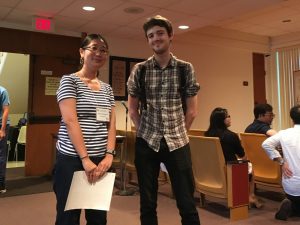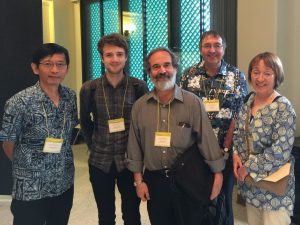HOW OUR READINGS ARE GROUPING THIS WEEK
SPLAP: Wednesday, 1:20 – 2:20 pm, LCR There will be a discussion of Aloni (2005), on the topic of “A Formal Treatment of the Pragmatics of Questions and Attitudes”
s/lab: Wednesday, 3:00 – 4:00 pm, LCR Nick Van Handel will be presenting his current research on adaptation to prepositional object gaps
LaLoCo: Thursday, 2:00 – 3:00 pm, LCR Discussion of chapter 4 of the textbook “Introduction to Connectionist Modelling of Cognitive Processes”, which introduces autoassociative neural networks
WLMA: Friday, 10:00 – 11:30 am, Stevenson 217 Judith Aissen will be leading a discussion of Kotek and Erlewine (2016), which is about “Unifying definite and indefinite free relatives: evidence from Mayan”
Phlunch: Friday, 12:00 – 1:00 pm, LCR Ryan Bennett will be leading a discussion of Shaw and Kawahara (2018), an experimental study of devoiced vowels in Japanese
S-Circle: Friday, 4:00 – 5:30 pm, LCR Jim McCloskey will be speaking on the subject of “Microparameters in a tiny space — stranding at the edge”

